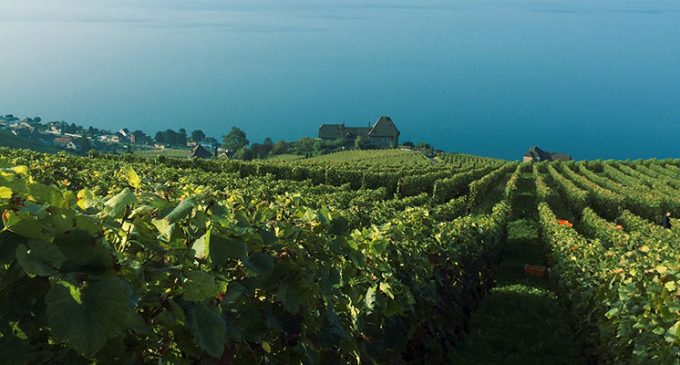Recycling Nespresso Coffee Grounds to Help Swiss Vineyard Soil

Swiss wine is one of the country’s best-kept secrets, a by-product of the fact that only around 1% of Switzerland’s 100 million litres produced annually is actually exported. On the shores of Lake Geneva, vineyard owners have been harnessing usedNespresso coffee grounds to supplement their soils with nitrogen and to prevent erosion.
The spent coffee from recycled Nespresso capsules are combined with organic matter to make fertiliser. “Around the world, Nespresso capsules are recycled in 30 countries, but, so far, Switzerland is the only place where the used coffee grounds end up on vineyards as fertiliser,” says Patrick Onken, Head of Marketing for Nespresso Switzerland.
For hundreds of years, grapes have been grown in the canton of Vaud where the lake, in the Southwest of the country, acts like a vast mirror, reflecting the sun onto the hillside vineyards. Vaud is also home to two Nespresso factories, in Orbe and Avenches, where the high qualityNespresso coffee is blended and encapsulated.
“After becoming espressos, lattes and cappuccinos, several tonnes of coffee grounds end up just kilometres from where they were roasted, ground and originally packed into the capsules, as part of this energy-rich fertiliser,” Patrick Onken explains.
After being separated from its aluminium capsule, which is also recycled after being melted down, the energy-dense coffee grounds from used Nespresso pods are diluted with local organic matter, such as food waste, and left to sit for around five months or so to become fertiliser.
The process takes place in La Coulette recycling centre, above the city of Lausanne. The fertiliser is then collected by individual wine-growers who cultivates Chasselas, Switzerland’s primary white wine grape, along with a variety of red wine grapes, such as Gamaret.

































